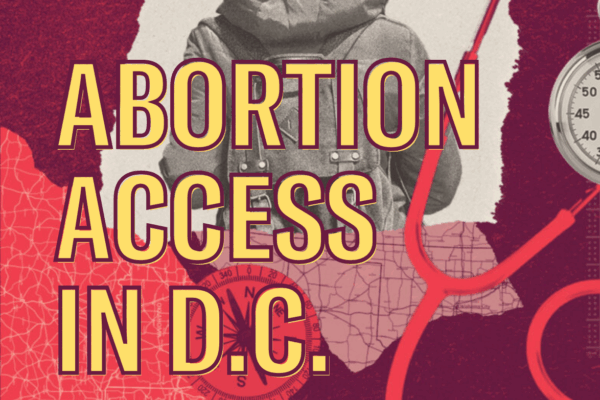Washington, D.C. — The Supreme Court issued a ruling today overturning Roe v. Wade — the landmark decision recognizing the constitutional right to abortion nearly 50 years ago. No one should be forced to carry a pregnancy against their will and face the life-altering consequences of being denied essential health care.
Abortion is still legal in the District of Columbia for residents and people who travel from other states to get safe and legal abortions. People can get a legal and safe abortion in D.C. throughout their entire pregnancy, for any reason, and those younger than 18 can do so without parental notification.
“Abortion has been protected in D.C. because for decades, our communities have organized to ensure that anyone who needs an abortion can safely and legally get this critical health care,” said Monica Hopkins, Executive Director of ACLU-D.C. “This decision casts a shameful shadow, but We the People can and will do what it takes to get through this excruciating moment together. ACLU-D.C. and our partners have worked for decades and will do everything we can to ensure that D.C. continues to be an abortion safe haven. We also stand ready to protect and expand any other rights that may be put in jeopardy by this ruling.”
ACLU-D.C. supports two bills in front of the D.C. Council that would protect reproductive freedom in Washington, D.C.: B24-0808, the Human be Rights Sanctuary Amendment Act of 2022 and B24-0726, the Enhancing Reproductive Health Protections Amendment Act of 2022.
“ACLU-D.C. supports these bills because they protect and expand D.C.’s status as a safe haven for anyone who needs an abortion or gender-affirming care,” said Nassim Moshiree, Policy Director of ACLU-D.C. “We will continue to work with our partners and local officials to defend and advance reproductive rights in the District of Columbia and to address the unforeseen consequences of this ruling.”
Despite the District’s current status as an abortion safe haven, without statehood, the future is uncertain. As a “federal district,” D.C. lacks the same level of autonomy over its laws and budget that states have, so members of Congress, none of whom were elected by D.C. voters, can strike down or repeal laws and can dictate how D.C. spends our own tax dollars. Congress imposed the legal restriction (the Dornan Amendment), which says that Medicaid dollars cannot pay for abortions. This racist and classist restriction means that BIPOC and low-income communities have to jump significant hurdles to get abortion care. 75% of people who have abortions in the U.S. are low-income and 60% are BIPOC, according to the Guttmacher Institute. In 2019, BIPOC people made up 81% of people who got abortions in D.C., according to the CDC.
“To protect and expand abortion access in the District, every person in the District and in every state can join the effort to make D.C. the 51st state,” said Hopkins. “The health of our democracy, and our bodies, depend on it."
Stay Informed
Sign up to be the first to hear about how to take action.
By completing this form, I agree to receive occasional emails per the terms of the ACLU’s privacy statement.
By completing this form, I agree to receive occasional emails per the terms of the ACLU’s privacy statement.


